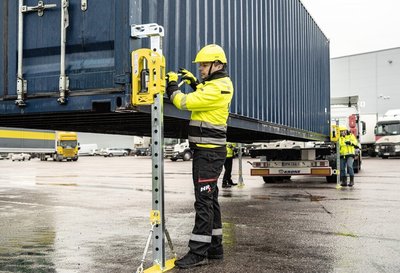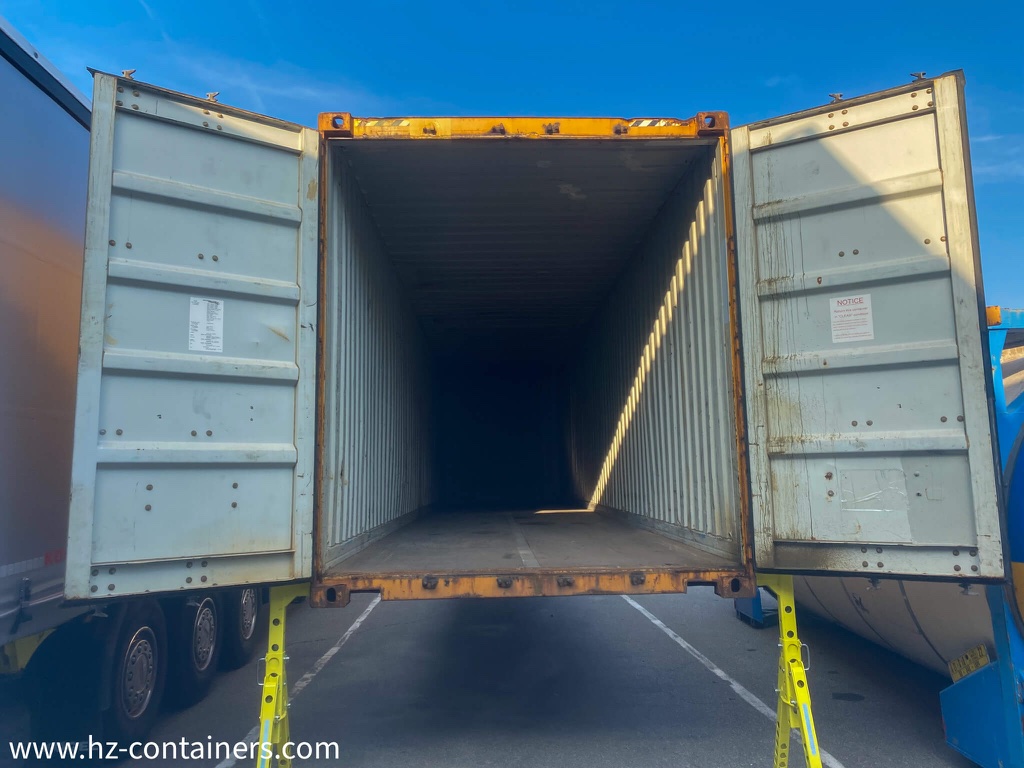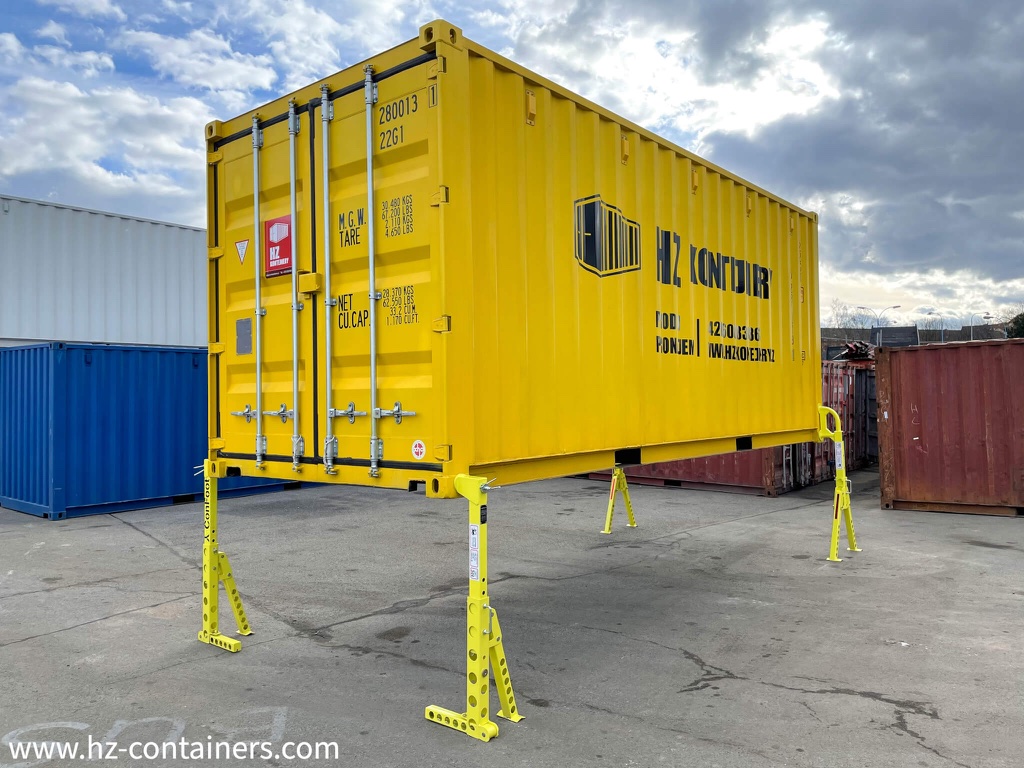The Challenges of Traditional Container Handling
Traditional container handling methods often rely on heavy machinery such as forklifts, cranes, and reach stackers. While these machines are effective, they come with several drawbacks:
- High Operational Costs: The initial investment in heavy machinery is substantial, and ongoing maintenance, fuel consumption, and skilled operators contribute to high operational costs.
- Safety Risks: Operating heavy machinery poses inherent safety risks, including accidents, injuries, and property damage. The complex maneuvers required to lift and move containers demand precision and vigilance.
- Space Constraints: Heavy machinery requires ample space to operate, making it challenging to handle containers in confined areas or urban environments.
- Environmental Impact: The use of fossil fuel-powered machinery contributes to greenhouse gas emissions and air pollution, raising environmental concerns.
- Dependency on Infrastructure: Traditional methods often require specialized infrastructure such as loading docks and reinforced surfaces, limiting flexibility and increasing infrastructure costs.
Introducing ConFoot: A Paradigm Shift in Container Handling
ConFoot offers a revolutionary approach to container handling, providing a safer, more efficient, and cost-effective alternative to traditional methods. ConFoot legs are specially designed steel supports that attach to the corners of shipping containers, allowing them to be easily raised and lowered without the need for heavy machinery.
Key Benefits of ConFoot Container Legs
- Enhanced Safety: ConFoot legs significantly reduce the risk of accidents and injuries by eliminating the need for heavy machinery and complex maneuvers. The stable and controlled lifting process ensures the safety of personnel and cargo.
- Reduced Operational Costs: By eliminating the need for heavy machinery, ConFoot legs drastically reduce operational costs associated with fuel consumption, maintenance, and skilled operators.
- Increased Efficiency: ConFoot legs streamline the container handling process, allowing for faster and more efficient loading and unloading operations. The quick and easy setup saves valuable time and resources.
- Improved Flexibility: ConFoot legs enable container handling in a wide range of environments, including confined spaces, urban areas, and locations without specialized infrastructure.
- Environmental Sustainability: By reducing reliance on fossil fuel-powered machinery, ConFoot legs contribute to a more sustainable and environmentally friendly logistics operation.
- Single Person Operation: ConFoot legs are designed to be operated by a single person, reducing labor costs and increasing operational flexibility. According to HZ-Containers, “These patented legs allow for easy folding and repositioning of containers without the need for heavy machinery, significantly simplifying logistics operations.”
How ConFoot Works
ConFoot legs are designed for easy installation and operation. The legs are attached to the corner castings of the container and then cranked to lift the container. Once the container is at the desired height, it can be easily moved or accessed.
ConFoot Applications
ConFoot legs are versatile and can be used in a wide range of applications, including:
- Grounding Containers: ConFoot legs allow containers to be safely and securely grounded on any surface, eliminating the need for specialized infrastructure.
- Loading and Unloading: ConFoot legs facilitate the easy loading and unloading of containers from trucks, trailers, and railcars.
- Temporary Storage: ConFoot legs provide a stable and secure platform for temporary container storage, allowing for efficient use of space.
- Mobile Offices and Workshops: ConFoot legs can be used to create mobile offices and workshops by raising containers off the ground and providing a level surface.
- Disaster Relief: ConFoot legs can be used to quickly deploy containers as temporary shelters, medical facilities, and storage units in disaster-stricken areas.
ConFoot vs. Traditional Methods: A Detailed Comparison
To fully appreciate the benefits of ConFoot, it’s essential to compare it with traditional container handling methods across various key metrics:
| Feature | ConFoot | Traditional Methods (Forklifts, Cranes) |
|---|---|---|
| Safety | Significantly reduced risk of accidents | Higher risk of accidents and injuries |
| Cost | Lower operational and maintenance costs | Higher operational and maintenance costs |
| Efficiency | Faster and more streamlined operations | Slower and more complex operations |
| Flexibility | Operates in diverse environments | Limited by space and infrastructure |
| Environmental Impact | Reduced emissions and fuel consumption | Higher emissions and fuel consumption |
| Labor | Single-person operation possible | Requires skilled operators |
| Infrastructure | Minimal infrastructure requirements | Requires specialized infrastructure |
| Space | Operates in confined spaces | Requires ample operating space |
Real-World Examples of ConFoot in Action
ConFoot legs have been successfully implemented in various industries and applications worldwide. Here are a few notable examples:
- Logistics Companies: Logistics companies use ConFoot legs to streamline container handling at distribution centers, reducing turnaround times and improving overall efficiency.
- Construction Sites: Construction companies use ConFoot legs to create mobile offices and workshops on-site, providing a convenient and cost-effective solution for project management.
- Agricultural Operations: Farmers use ConFoot legs to store and transport crops, providing a secure and weather-resistant solution for agricultural logistics.
- Military Applications: The military uses ConFoot legs to deploy containers as temporary shelters, medical facilities, and storage units in remote locations.
- Disaster Relief Organizations: Disaster relief organizations use ConFoot legs to quickly deploy containers as emergency shelters and supply depots in disaster-stricken areas.
Technical Specifications of ConFoot Legs
ConFoot legs are engineered to meet the highest standards of quality and performance. Here are some key technical specifications:
- Material: High-strength steel
- Lifting Capacity: Up to 30 tons per container (depending on the model)
- Adjustable Height: Varies depending on the model, typically ranging from 0.5 meters to 1.5 meters
- Weight: Varies depending on the model, typically ranging from 50 kg to 100 kg per leg
- Compliance: ISO 1496-1, CSC certified
Addressing Common Concerns about ConFoot
While ConFoot offers numerous advantages, some potential users may have concerns about its suitability for their specific needs. Here are some common concerns and their corresponding solutions:
- Durability: ConFoot legs are constructed from high-strength steel and are designed to withstand harsh environmental conditions and heavy use. Regular inspection and maintenance can further extend their lifespan.
- Ease of Use: ConFoot legs are designed for easy installation and operation, even by a single person. Training and instructional materials are available to ensure proper use.
- Compatibility: ConFoot legs are compatible with standard ISO shipping containers. Adapters may be required for non-standard containers.
- Cost: While the initial investment in ConFoot legs may be higher than some traditional methods, the long-term cost savings in terms of reduced operational expenses and increased efficiency make it a worthwhile investment.
The Future of Container Handling with ConFoot
As the demand for efficient and sustainable logistics solutions continues to grow, ConFoot is poised to play an increasingly important role in the future of container handling. Ongoing research and development efforts are focused on further enhancing the performance, versatility, and ease of use of ConFoot legs.
Innovations in ConFoot Technology
- Automated Lifting Systems: Integration of electric or hydraulic lifting systems for even faster and more effortless container handling.
- Remote Monitoring: Implementation of sensors and remote monitoring systems to track the status and performance of ConFoot legs in real-time.
- Smart Container Integration: Development of smart container solutions that integrate ConFoot legs with IoT technology for enhanced tracking, security, and management.
- Lightweight Materials: Exploration of lightweight materials such as aluminum and composites to reduce the weight of ConFoot legs without compromising strength or durability.
Get in Touch
Are you ready to revolutionize your container handling operations? Contact us today to learn more about ConFoot and how it can benefit your business. Our team of experts will provide a personalized assessment of your needs and recommend the best ConFoot solution for your specific requirements. Don’t miss out on the opportunity to gain a competitive edge with ConFoot!


